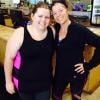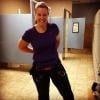Search the Community
Showing results for 'Yogurt'.
Found 17,501 results
-
I found the Fage Greek Fat Free yogurt to have the lowest Carbs and calories with the highest protein content of them all.
-
I prefer Chobani Greek yogurt. During mushies I used a hand blender to mince the fruit. Also splendra helps with the sourness. Make sure to get 0 or 2%, some brands are full fat!
-


this is excellent for anyone in the soft/pureed stage
Ginger Snaps replied to pookybear's topic in POST-Operation Weight Loss Surgery Q&A
@pik My NUT gave me a great idea for the sugar situation with Greek yogurt. She had me buy the plain, fat free kind and then mix in a gel cup of SF jello. That way you get the fruity taste but not the sugar. It really helps the flavor. -


Impatient hombre wanting to borrow some of your wisdom.
TXMissy replied to Dub's topic in POST-Operation Weight Loss Surgery Q&A
Those first few days I just ate because I thought I was suppose to. I had low fat yogurt and a cup would last me 3 servings, I couldn't drink milk preop so I just kept unsweetened almond on hand to Water down pudding and yogurt. chicken broth was good but very small amounts like 2oz was more than a meal, Protein shakes were good but even those I watered down with almond milk. I love Quest bars, my favorite is Peanut Butter and jelly. At first you may not be able to eat them. I am 3 months post op and just recently started eating regularly. You'll find people really don't care if you eat or not. At first it was awkward for me, but really people don't care. If they order in sandwiches eat the filling. I just eat what I can when I can. I was home for a week, second week was rough, but I managed. I was very tired. I'm not sure I would have been able to take a full 2nd week off because I started getting antsy sitting around the house. I was wandering outside walking to the corner and back which is only like 3 lots. The more walking I did and still do the better I feel. When they let you walk, walk. I was given some clothes, I had a few different sizes and I just bought clothes is smaller than I had for the first time. I wish I had more time to exercise, but my level of motion has increased so much. I use to not be able to put my socks on with out struggling. Now I can do it standing up. I'm about to join a new gym, I'm hoping to shed more weight through exercise. I think the biggest surprise is my ever changing body. I have been this size before but I don't remember feeling like I do. I feel amazing. Good luck to you!! I hope my answers have helped. I wish j would have done this 5 years ago!! -


Struggling with post op diet!
Lizzyfromnapa posted a topic in POST-Operation Weight Loss Surgery Q&A
My surgery was last Tuesday (6 days ago). I'm still on stage 3 (water, bean Soups, yogurt, and Protein shakes). At this point I'm still unable to eat more than 3-4 bites of anything without getting the chest pain as if I'm eating fast, but I know I'm not. It's becoming impossible to get the required 60g Of protein and 64 oz of water/fluids. The only way is to have 2 ENTIRE shakes (I can drink 1/4 and it takes me 45 mins) and work on Water ALL day! Ugggh. Seems like a full time job and im failing big time. Any suggestions?? Please tell me this doesn't last long🙁 -


Gas pains every time when eating or drinking
irkenpanda posted a topic in POST-Operation Weight Loss Surgery Q&A
Hey all, I was sleeved 3/21 and I am now on the full liquid stage of the diet which for me includes clear liquids, protein shakes, greek yogurt, sugar free pudding etc. The problem is, every time I eat or drink anything (sometimes including water) I get these horrible gas pains in my stomach like I need to burp. It is literally right after I take one bite or one sip. I don't have much gas pain otherwise so i am wondering if this is a normal sensation in the beginning and will it last very long? I have heard of people talking about feeling full and needing to burp or getting pain when they get full but I don't think this is the same since it only takes one bite or one sip. Will this be the same feeling when I do get full later on?? I am also choosing not to take any of the Lortab they sent me home with for pain because I am intensely afraid of throwing up and Hydrocodone usually makes me do so. Other than what I mentioned above and the incision site soreness in the abdominal wall, I am not in any other pain. Oh onemore question, how did everyone do with coughing up thick phlegm out of their lungs post-op? The coughing hurts badly when it happens. -


Please explain protein for weight loss to me
mhuntoon posted a topic in POST-Operation Weight Loss Surgery Q&A
Can someone please explain to me in layman's terms how Protein works in speeding up weight loss? I read an article last month in which a famous nutritionist whose name now escapes me (on a reputable site) claimed that you should eat protein equal to your goal weight. For an example, he stated that if you weighed 180 (ha ha) and wanted to weigh 140, you should eat 140 grams of protein per day. When I mentioned this to my nutritionist, she became concerned and said that much protein would not be good for your kidneys, which is what I thought as well. She then went on to say that protein IS vital to weight loss and that I really should be trying hard to get 80 grams per day. I explained that I'm probably averaging closer to 60 which she seemed okay with, but did encourage me to increase it. I'm struggling to get my 80 grams per day because I'm growing increasingly sick of eggs, Protein shakes, and greek yogurt which have been three of my biggest sources of protein to date. I also try to eat 4-5 Quest Bars per week (has anyone received their free samples for that other link yet? I haven't) as those have 20-21 grams of protein and taste good enough to eat fairly regularly. I don't want to eat more than one per day due to cost and the fear that I'll grow increasingly sick of those (see eggs, shakes, and yogurt above). I guess my questions are: 1. How does protein speed up the weight loss process? 2. How close do you come to reaching whatever goal your surgeon/doctor/nutritionist set for you (mine is 80g/day)? 3. How do you increase your protein intake without getting tired of eating the same things regularly? As of today, I've lost 68 lbs since dieting pre-surgery (beginning the day after Thanksgiving) and have 49 to go to reach my goal. Originally, I wanted to reach that goal by my oldest child's birthday in August, but that would still leave me at nearly 4 lbs per week which is pretty high based on how I've done the last 4-5 weeks. Modifying my goal to this coming Thanksgiving instead seems FAR more realistic. Halloween would make me very happy, though -


Please explain protein for weight loss to me
Stephanie Stroup McIntosh replied to mhuntoon's topic in POST-Operation Weight Loss Surgery Q&A
My understanding is that your body uses the energy stored in your muscles first and that you need more Protein to rebuild your muscles. It also helps to keep you fuller longer, so you don't want to eat as often. I a recommended to get 60-100g of protein, but for my height (5'3"), the ideal amount is 80g. To get my protein I make sure that I am choosing items that are high in protein and eating them first. I also make an iced coffee Protein Drink, which i could drink all day long. My doctor is ok with Protein drinks at all stages assuming it is high in protein and low in carbs/calories. I also mix unjury or Be Pure unflavored Protein powder into other foods. This morning i had greek yogurt and mixed in half a scoop of protein powder. That made my yogurt have 25g of protein. I will mix it in with a lot of other foods as well. I am only 4 weeks post op, so I have just recently gotten to the point that I can get enough protein and most of it is still via shakes. I do get at least 60g and usually have 80-90. I recommend switching up the flavors of products. If you can cook the products to taste differently than you won't get tired of them as easily. What stage of the diet are you? That will help us to give you some recipes. -


AM I DOING SOMETHING WRONG OR IS THIS NORMAL?
OregonTeacher replied to Rev Del's topic in POST-Operation Weight Loss Surgery Q&A
@@Rev Del, I drink one protein shake per day (32 grams) and then use a combo of 1/4 cottage cheese (6.5 grabs), 1/4 cup Cream of Wheat (3 grams), 1/4 cup Greek Yogurt (6.5 grams), 1/4 cup milk (2 grams), and the occasional meal of two egg whites (7 grams). Not too exciting, but I can usually hit my current requirement of 60 grams per day. I was able to raise my protein amount a bit within my shake by using unflavored protein powder with milk and adding one packet of Diet Hot cocoa mix which has 2 grams of protein. -
I found this information and I thought it was good to post for "New Post-OP Sleevers" and/or if some "Veteran Sleevers" out there would like to review or restart their Post-OP phase because maybe the hit a stall: Dietary Guidelines After Bariatric Surgery General Guidelines Eat balanced meals with smaill portions.Keep a daily record of your food portions and of your calorie and protein intake.Eat slowly and chew small bites of food thoroughly.Avoid rice, bread, raw vegetables and fresh fruits, as well as meats that are not easily chewed, such as pork and steak. Ground meats are usually better tolerated.Do not use straws, drink carbonated beverages or chew ice. They can introduce air into your pouch and cause discomfort.Avoid sugar, sugar-containing foods and beverages, concentrated sweets and fruit juices.For the first two months following surgery, your calorie intake should be between 300 and 600 calories a day, with a focus on thin and thicker liquids.Daily caloric intake should not exceed 1,000 calories. Fluids Drink extra water and low-calorie or calorie-free fluids between meals to avoid dehydration. All liquids should be caffeine-free. Sip about 1 cup of fluid between each small meal, six to eight times a day. We recommend drinking at least 2 liters (64 ounces or 8 cups) of fluids a day. You will gradually be able to meet this target. We strongly warn against drinking any alcoholic beverages. After surgery, alcohol is absorbed into your system much more quickly than before, making its sedative and mood-altering effects more difficult to predict and control. Protein Preserve muscle tissue by eating foods rich in protein. High-protein foods include eggs, meats, fish, seafood, tuna, poultry, soy milk, tofu, cottage cheese, yogurt and other milk products. Your goal should be a minimum of 65 to 75 grams of protein a day. Don't worry if you can't reach this goal in the first few months after surgery. Supplements You must take the following supplements on a daily basis to prevent nutrient deficiencies. Please remember that all pills must be crushed or cut into six to eight small pieces. You are not able to absorb whole pills as well as before surgery, and it can be difficult for the pills to pass through your new anatomy. Multivitamins Take a high-potency daily chewable multivitamin and mineral supplement that contains a minimum of 18 mg of iron, 400 mcg of folic acid, selenium, copper and zinc. Brands that contain this formula include Trader Joe’s and Centrum Adult chewable multivitamins. Take two tablets daily for at least three months after your surgery, and then one tablet daily for life. Calcium Supplement Take 1,200 to 2,000 mg of calcium daily to prevent calcium deficiency and bone disease. To enhance absorption, take the calcium in two to three divided doses throughout the day - for example, a 500 to 600 mg supplement taken three times a day. Calcium citrate is the preferred form of calcium. Vitamin D Supplement Take a total of 800 to 1,000 International Units (IUs) of vitamin D each day. This total amount should be taken in divided doses of 400 to 500 IUs twice a day. Vitamin D should be taken with your calcium supplement. If you prefer, you can take a combination calcium-vitamin D supplement to avoid taking multiple pills, so long as it contains the proper dosages. Vitamin B12 Supplement Take 500 mcg of vitamin B daily. It can be taken as a tablet, or in sublingual forms placed under the tongue. Other Supplements Some patients need additional folic acid or iron supplements, particularly women who are still menstruating. Your dietitian will discuss this with you. Diet Progression After Bariatric Surgery Immediately following surgery, you will begin with a clear liquid diet. You may gradually start adding thicker liquids to your diet after you are discharged from the hospital. Two weeks following surgery, you may progress to blended and puréed foods. You may use high-protein (more than 20 grams protein), low-calorie (less than 200 calories) liquid supplement drinks or powders to meet your protein requirements during this period. It is important to know that following surgery, your stomach size is very small - less than 1/4 cup, or about the size of an egg. The opening that allows food to pass out of your stomach is also very narrow. For this reason, it is important to take only two to three sips or bites at a time of any new food and then wait 10 minutes before taking more. This will help you learn your limits and tolerance. Liquids will empty faster from your stomach than soft solids. If you overeat or eat too quickly, you may experience nausea or pain. You should avoid rich, creamy liquids such as gravies, sauces and ice creams. Diet for the First Two Weeks Post-Surgery You will begin adding thicker liquids that are high in protein and low in fat and sugar. (For examples, see the list below.) You may use high-protein, low-calorie liquid supplement drinks or powders to meet your protein requirements during this period. The goal is to consume small portions that will empty easily from your pouch. Begin with 1 tablespoon portion sizes and increase to 2 tablespoons as tolerated. Begin drinking 1/4 cup of liquid at a time and increase to a 1/2 cup as tolerated. Your daily caloric intake should not exceed 400 calories. It is also very important to stay well hydrated. Drink 1 to 1.5 liters of water or other non-caloric liquids per day. Recommended thicker liquids: Nonfat or 1% milk, if you can tolerate milk Lactose-free or soy-based low-calorie drinks Sugar-free pudding Sugar-free, nonfat yogurt Low-fat cottage cheese Blended broth-based soup or other low-fat soups Refined hot cereals that are low in fiber, such as cream of rice or cream of wheat. Make them with extra liquid to create a soup-like consistency. Do not eat oatmeal. Optional high-protein, low-calorie liquid supplement drinks (drinks containing less than 200 calories and more than 20 grams of protein in an 8- to 11-ounce serving). To increase your protein intake, add 2 tablespoons non-fat dry milk powder, egg substitute or powered egg, or other protein powder to each 1/2 cup of nonfat or low-fat milk. You can also add these to soups, hot cereal and other thick liquids. Remember to drink 1 cup of water or other non-caloric fluids between meals. Take a multivitamin supplement every day. Diet for Weeks Two to Four Post-Surgery Begin adding very small portions of puréed and soft foods as tolerated. Take very small bites and chew everything very well. Do not take more than two bites every 20 minutes when adding a new food. Recommended puréed and soft foods: Applesauce Yogurt Cottage cheese Well-cooked, puréed vegetables Hot cereals Mashed potatoes Noodles Scrambled egg whites or egg substitute Canned fruits Canned tuna fish Lean fish Tofu Lean ground meats or poultry Avoid all bread and meats that are not easily chewed. Recommended Meal Plan For Weeks Two to Eight Until Two Months Post-Surgery At this time, your caloric intake will probably be no more than 500 calories a day, divided into six to eight small meals. Recommended portion sizes are 1/4 cup for solids and 1/2 cup for liquids. Sample Menu This sample menu includes different foods that are safe for you to eat. You may adjust the menu to fit your tastes and tolerance. Breakfast 1/4 cup hot cereal made with non-fat milk Mid-Morning 1/2 cup nonfat milk* Late Morning Two scrambled egg whites Lunch 1/2 cup low-fat chicken noodle soup Mid-Afternoon 1/4 cup low-fat cottage cheese Late Afternoon 1/4 cup sugar-free, nonfat yogurt Dinner 2 ounces lean ground meat 1/4 cup puréed or well-cooked vegetables Bedtime Snack 1/4 cup non-fat milk * Add 1 tablespoon non-fat dry milk powder to each 1/4 cup nonfat milk for additional protein. Remember to drink 1 cup of water or other non-caloric fluids between meals. It is important to take a multivitamin and mineral supplement every day, plus additional iron if required, and calcium and vitamin D supplements two to three times per day. Recommended Meal Plan for Two to Six Months Post-Surgery Consume 900 to 1,000 calories and at least 65 to 75 grams of protein a day. For balanced nutrient intake, your daily servings should include: 3 servings milk and dairy products (nonfat and low-fat) 3 servings meat or meat alternative (lean and low-fat) 3 servings starch (limit bread and rice) 1 serving fruit (avoid dried fruits and fruits with skin) 2 servings vegetable (well-cooked only) Recommended portion sizes are 1/4 cup for solids and 1/2 cup for liquids. Discontinue taking high-protein liquid supplement drinks or powders if possible. We recommend meeting your protein needs with food. Sample Menu This sample menu includes different foods that are safe for you to eat. You may adjust the menu to fit your tastes and tolerance. Breakfast 1 egg or 1/4 cup egg substitute 1/2 cup hot cereal Mid-Morning 1/2 cup nonfat milk Late Morning 1/2 cup chopped melon Lunch 1/2 cup low-fat chicken noodle soup Two Saltine crackers Mid-Afternoon 1/4 cup low-fat cottage cheese 1/4 cup canned fruit packed in water or juice Late Afternoon 1/2 cup sugar-free, nonfat yogurt Dinner 2 ounces lean meat or fish 1/4 cup mashed potatoes 1/4 cup pureed or well-cooked vegetables Bedtime Snack 1/2 cup nonfat milk The sample menu offers eight small meals per day. You may wish to eat more or less often, but be sure to eat at least six times each day. Remember to drink 1 cup of water or other non-caloric fluid between meals. It is important to take a multivitamin and mineral supplement daily, plus additional iron if required. In addition, you must take calcium and vitamin D supplements two to three times per day. Recommended Meal Plan for Six Months Post-Surgery and Beyond Continue consuming 900 to 1,000 calories per day Decrease to three meals and only one to two snacks per day Discontinue taking high-protein liquid supplement drinks Increase the variety of low-fat, low-sugar and low-calorie foods, as tolerated Avoid raw vegetables, fresh fruits with skins, dried fruits, breads, popcorn, nuts and red meats only if poorly tolerated Long-term Dietary Guidelines Over time, you will be able to increase the variety and consistency of foods in your diet. Some foods may continue to be poorly tolerated, including red meats, chicken, breads, and high-fiber fruits and vegetables. Focus on low-fat, low-sugar and low-calorie foods and continue to count your calories every day. Try to meet your serving goals for all food groups based on the 900 to 1,000 calories diet plan described above. To stay well hydrated, drink at least 2 liters of water or non-caloric fluids daily, unless this is contraindicated due to a medical condition.
-


What is/was your post op diet?
yami17leth replied to Lisa1996's topic in POST-Operation Weight Loss Surgery Q&A
I had surgery 4/13 Was sent home on stage 3. For the first 2 weeks until my post up apt I had clear liquids, Protein shakes and yogurt. Week 3 until my next nut apt in about 3 weeks i'm on stage 4 soft foods. Cottage cheese, fish, salmon, tuna in Water ect. I have been on stage 4 for almost 2 weeks now. I'm trying to make different types of food. YES! I have had to trow away lots of food either because I didn't like the taste or because I like it the first time but not anymore. My tastes have changed a lot after surgery and it does happen to many people. I remember when I was told I had to get used to wasting food as it would be no option after surgery Sent from my iPhone using the BariatricPal App -


I need some help clarifying before i fill again
koolkel posted a topic in POST-Operation Weight Loss Surgery Q&A
So-- I had my third fill and refused a fourth because I keep getting stuck. Several times a week, I have to "spit" out food stuck above my band. I feel this is self-induced( though time of day influences it as well.) I'm actually scared of another fill. I am afraid I will actually choke or vomit. I'm hungry. Some days I feel like i can eat and eat and eat( bottomless pit!) I'm hungry every few hours. I'm guessing I am not in green zone but I'm afraid of more fill! Any advice? I'm modifying my bites and chews, but I've even been stuck on yogurt! -


Hungry All The Time After Gastric Sleeve Surgery
mont247 replied to jayzer's topic in POST-Operation Weight Loss Surgery Q&A
Hello every one I'm 5 months post op, I've lost 35 pounds, the last few months no weight loss and I always feel hungry. I'm a vegetarian so I know it's harder to get the Protein. I'm always switching from shakes to cheese or greek & yogurt. You know what I mean. I talked to my good friend who went through a gastric and she advised me that there are times like this where you just don't lose weight. I can not eat a lot when I do eat but every few hours I eat a snack or food. Sometimes I feel like I eat too much. I'm still learning how to eat right and how much. I'm not giving up just always looking for new ways to eat and what I can eat. Oh forgot to mention I had to have my gall bladder removed about 6 weeks ago. Anyways my friend said it took her a year and a half to lose all her weight so I figure we're all on the right track it just takes time and EXERCISE!!!! Which I do 2 to 3 times a week. I did this to lose 50 pounds it doesn't matter how much you are over weight because you know it and you feel it. That's why I went to Tijuana to have my sleeve because I couldn't have it done in the US. SO I have 15 more pounds to go. -


Struggling with the liquid diet numbers game
BLERDgirl replied to BrightEyes529's topic in POST-Operation Weight Loss Surgery Q&A
My first month out my calorie range was 400 - 600, but my NUT was more concerned with me meeting my Protein and Fluid goals. Being low cal for a bit won't hurt. We have plenty of fat reserves to take care of that. I started the day with a Protein shake with ¼ - ½ cup plain greek yogurt, 1 scoop Protein powder and whatever mixin's I liked, often 1 tbsp of almond butter, sometimes a 1 - 2 ounces of fruit and some chopped spinach or fresh spinach leaves mixed with Water and served over ice. That was Breakfast and lunch was pretty similar. dinner was veg broth or clear Soup with ½ - whole scoop unflavored protein powder. In between that I sipped on my water. -


Anyone else doing a 5 wk liquid diet?
nfreeman610 replied to nfreeman610's topic in PRE-Operation Weight Loss Surgery Q&A
So no meals. It's 2 Protein shakes, no sugar added juice 16 oz, 1 yogurt 4 oz, sugar free Jello, sugar free popcicles, Sent from my iPhone using the BariatricPal App I'm on day 2 and doing great...so far!! Sent from my iPhone using the BariatricPal App -


I can eat something one day, the next I can't tolerate it?
crocodoxie replied to Flutterfly's topic in POST-Operation Weight Loss Surgery Q&A
Yes! I have the same thing. Greek yogurt, one day I love it. The next, just the smell turns me off. Eggs, fab for a week straight, the next week, nope, not today. It's an interesting process and I just accept it for what it is. I usually know within a bite or two. -
If you have an Aldi's near you, their Greek yogurt rocks!! Not as tart as the others
-
I'm still pre sleeve, but I do a lot of Greek yogurt. I get plain 0% fat Fage, or costco has their own as well. I make my own fruit purées and mix them in - often it's sweet enough without any additional sweetening, or with just a tiny amount of raw honey or agave syrup if the fruit isn't really ripe enough. Alternatively, I get some of the no sugar added fruit preserves and stir in a spoonful is that. That said, I do enjoy several of the Chobani flavors if I'm in a hurry and need something grab and go! Sent from my SAMSUNG-SGH-T989 using VST
-


Need breakfast ideas - what are you eating for bf?
JessLess replied to indacrucible's topic in Food and Nutrition
I eat 1 scrambled egg with 1 ounce of lox (smoked salmon) mixed in. Then I have four ounces of tomato juice to wash down my morning pills. A thicker liquid makes taking my pills a lot easier. If I’m on the road, yogurt and a little fruit. -


Mixed feeling more question! WHAT IF!
Lila21 replied to Loooou's topic in Gastric Sleeve Surgery Forums
Hey there! Don't worry about asking questions... EVERYONE has a million questions before surgery and everyone is scared! Regarding the food I can eat. So far, there hasn't been anything I can't tolerate. There are a few things that go down better if there is sauce to make it more juicy. For example, when I eat chicken I usually make a yogurt sauce to dip it in. I also sometimes make Soup, and I eat the broth first, and wait a little bit before eating the solids--chicken is pretty tender when you cook it this way. As to your question about the number of calories, I'm not sure. The lowest I ever went before surgery was 1200 calories. Maybe your surgeon can give you some advice on this one.... As to the liquid diet, I had no problem with it, other than getting really bored and craving something savory. I ate a lot of Protein drinks and prayed for the mushy phase :-). I'm sure you could probably drink a latte (although we were told to stay away from caffeine early out, so I'd go with a decaffeinated latte maybe :-))I hope that helps! If it makes you feel any better, none of the things I was afraid of happened. I've had a really easy experience, and my restriction has been good, but I haven't had any of the typical problems that bandsters have like sliming, vomiting, and feeling stuck.... I hope that helps! Best of luck to you! -


Cant get enough calories and protein in. Help
Creekimp13 replied to eso0402's topic in POST-Operation Weight Loss Surgery Q&A
Avocados and nuts are packed with calories and are very healthy foods that go down very easy. Consider protein bars, greek yogurt, refried beans, baked potato with lowfat cheese on top. All good early foods. Good luck! -
Organic, plain 2% Greek yogurt with 4-8 blue or raspberries is great at one month. I still eat it now with chia seed (not recommended until a few months out) or flax, raw honey, or goji berries/cacao nibs mix.
-


How long on Protein Drinks/Supplements?
KateMarie replied to Katie713's topic in Protein, Vitamins, and Supplements
For 2 weeks preop and 6 weeks postop, I was limited to 3 protein drinks and 2 yogurts. I'm at 8 weeks now and I still use the drinks to get in the required amount of protein. I'm struggling with getting most foods down so I like having the drinks around. I never used the dr. recommended drinks because 1- they were disgusting and 2- they averaged about $75 a week. I use EAS Carb Control in chocolate. Not too chalky or gross. -


Genral feeling of Sick post op
SugarFreeMe replied to jaymeeo's topic in POST-Operation Weight Loss Surgery Q&A
At 6 days your stomach is still swollen from surgery and probably doesn't want anything in it. I had to stick with warm things to eat or drink. Cold was a big no-no for my tummy. I drank a lot of warm tea (with unflavored Protein in it) as well as blended cream of chicken Soup and other mushy foods. Yogurt took a while (couple of weeks) because of the coldness. I did get SF Jello down, but I let it sit on the counter for 1/2 an hour before I ate it. Again, your still swollen and things are still healing. You'll get there a little at a time. Have you gone for your 1 week check-up??? If not, mention it to your surgeon to be sure, but I'm guessing its just a time thing. -


What do you “EAT”
RickM replied to Excitedforthesleeve's topic in POST-Operation Weight Loss Surgery Q&A
Protein drinks are the staple early out; I would avoid that Genepro stuff as it neatly fits into the "too good to be true" miracle supplement scam category (and nobody really knows what it is.) Whey protein, preferably whey isolate, is the well accepted, best absorbed form. I also had greek yogurt, eggs, and some sloppy tuna salad, though those may not be permitted on some diets the first week or two - check with your program directions.







